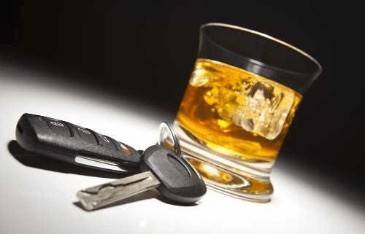Being charged with a single DUI can upturn your life. You may lose your license, be sent to jail, and have to pay hefty fines. Because Colorado treats DUIs as priorable offenses, defendants can face harsher penalties if they have committed DUIs in the past. In serious cases, this can lead to being labeled a habitual traffic offender.
What Is a Habitual Traffic Offender?
 A habitual traffic offender (HTO) in Colorado is someone with three or more serious traffic offenses within a period of seven years. To be declared an HTO, you must be found guilty of certain traffic crimes three separate times within seven years, whether the convictions occurred inside or outside of Colorado. Those crimes include:
A habitual traffic offender (HTO) in Colorado is someone with three or more serious traffic offenses within a period of seven years. To be declared an HTO, you must be found guilty of certain traffic crimes three separate times within seven years, whether the convictions occurred inside or outside of Colorado. Those crimes include:
- DUI
- Reckless driving
- Vehicular homicide
- Vehicular assault
- Hit and run involving serious injury or death
- Driving under a suspended, revoked, denied, or restrained license (DUR – driving under restraint)
As DUI falls into this category of serious traffic offenses, a third DUI conviction within a seven-year period could result in habitual traffic offender status.
DMV Points and HTO
You cannot be labeled an HTO for something as simple as too many parking tickets, but moving violations accumulated in the past five years can count against you. If you have 10 or more infractions that add four points to your total, or 18 or more infractions that add three or fewer points, within a five-year period, you can be declared a habitual traffic offender. Points must come from separate and distinct traffic case offenses. This means the offenses cannot have occurred within 24 hours of each other.
Penalties for Habitual Traffic Offenders
If you are declared an HTO, the DMV will revoke your driving privileges for five years, in addition to any restraints previously in place. In some Colorado locations, your vehicle can be impounded and seized if it has been involved in habitual offenses.
If you are caught driving thereafter, while your license is still revoked, you can be arrested for driving after revocation prohibited (DARP). This offense is a Class 1 misdemeanor. Penalties include a jail time, with a mandatory minimum of 30 days and a maximum of 18 months, and fines from a minimum of $3,000 to a maximum of $5,000.
If another major traffic offense, such as DUI, is charged from the same incident, you will be charged with aggravated driving as a habitual offender. Aggravated DARP carries a mandatory minimum jail sentence of 60 days.
How to Avoid Habitual Traffic Offender Status
If you are charged with a serious traffic offense, it is important to have an experienced Colorado Springs criminal defense attorney represent you. Your lawyer may be able to raise legal defenses against the charges, such as:
- Your driving record contains errors that make you a habitual offender.
- You were deprived of a lawyer in an earlier traffic conviction.
- You did not commit the offense that made you a habitual offender.
- You were only driving because of an emergency.
- You were not the person driving the vehicle.
At The Bussey Law Firm, P.C. we are respected throughout the area for delivering premium representation and achieving exceptional results. Our Colorado Springs criminal defense attorney has years of experience as a former prosecutor and a deep understanding of how the other side operates. We take the time to study and utilize every aspect of your case to develop the most effective defense strategy possible.
We offer a free initial consultation. If you or someone you love has been charged with a DUI, call us as soon as possible at (719) 475-2555.
